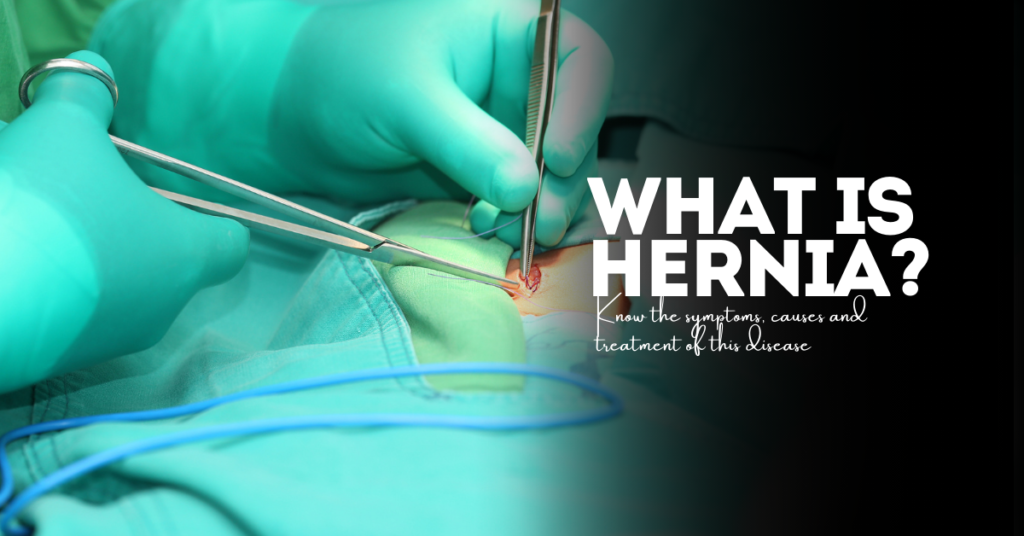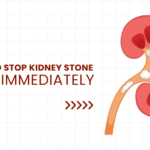
Understanding Hernia: Symptoms, Causes, and Treatments Explained Simply
Hernia – it’s a term that might sound a bit scary, but understanding it can help ease worries and guide proper treatment. Essentially, a hernia occurs when an organ or fatty tissue squeezes through a weak spot in the surrounding muscle or connective tissue. It’s a common condition that affects millions of people worldwide. In this blog, we’ll delve into what hernia is all about – its symptoms, causes, and treatments – in a simple and understandable way.
What is a Hernia? Imagine your body is like a house with walls made of muscles. Sometimes, these walls can get weak, creating little gaps or holes. When something inside your body, like your intestine or fatty tissue, pokes through these weak spots, that’s called a hernia. It’s like a bulge or lump forming under your skin, often noticeable when you cough or strain.
Symptoms of Hernia: Identifying a hernia can be tricky because its symptoms can vary depending on where it occurs. However, some common signs include:
- Visible Bulge: You might notice a lump or bulge under your skin, especially when you’re lifting something heavy or straining during bowel movements or coughing.
- Discomfort or Pain: You may feel discomfort or even sharp pain around the bulge, particularly when you’re bending over or lifting heavy objects.
- Burning Sensation: Some people describe a burning sensation around the bulge, especially if it’s in the abdominal area.
- Feeling of Heaviness: You might experience a feeling of heaviness or pressure in the affected area, which can worsen as the day progresses.
- Digestive Issues: In certain types of hernias, such as hiatal hernias, you may experience symptoms like acid reflux, difficulty swallowing, or chest pain.
Common Types of Hernias: Hernias can occur in various parts of the body. Some of the most common types include:
- Inguinal Hernia: This type occurs when a part of the intestine or fatty tissue pushes through the inguinal canal in the groin area. It’s more common in men.
- Femoral Hernia: Similar to inguinal hernias, femoral hernias also involve tissue poking through the groin but typically occur lower down and are more common in women.
- Hiatal Hernia: In this type, the upper part of the stomach bulges through the diaphragm into the chest cavity. It can cause symptoms like heartburn and difficulty swallowing.
- Incisional Hernia: These hernias develop at the site of a previous surgical incision, where the abdominal muscles may have weakened.
- Umbilical Hernia: Common in newborns, umbilical hernias occur when part of the intestine protrudes through the abdominal wall near the belly button. They may also occur in adults due to factors like obesity or pregnancy.
Causes of Hernia: Hernias can be caused by a combination of factors, including:
- Weak Muscles: Weakness in the abdominal wall muscles, often present at birth or due to aging, injury, or strenuous physical activity, can increase the risk of hernias.
- Heavy Lifting: Frequently lifting heavy objects, especially when done incorrectly with poor posture, can strain the abdominal muscles and contribute to hernia formation.
- Chronic Constipation or Straining: Chronic constipation or straining during bowel movements can increase abdominal pressure, making hernias more likely to occur.
- Pregnancy: The increased pressure on the abdomen during pregnancy can weaken abdominal muscles and contribute to hernias, particularly umbilical hernias.
- Obesity: Excess weight puts added strain on the abdominal muscles, increasing the risk of hernia development.
Treatment Options for Hernia: Fortunately, hernias can often be treated effectively, depending on the severity and type. Here are some common treatment options:
- Watchful Waiting: For small, asymptomatic hernias, especially in elderly or high-risk patients, doctors may recommend a watchful waiting approach, monitoring the hernia’s progression without immediate intervention.
- Lifestyle Changes: Making lifestyle changes such as avoiding heavy lifting, maintaining a healthy weight, and treating underlying conditions like constipation can help prevent hernias from worsening.
- Medications: For hiatal hernias causing acid reflux symptoms, medications such as antacids, proton pump inhibitors, or H2 blockers may be prescribed to reduce stomach acid production and alleviate symptoms.
- Hernia Belt or Truss: In some cases, wearing a supportive hernia belt or truss may help reduce discomfort and keep the hernia from protruding further, especially when surgery isn’t an immediate option.
- Surgery: For symptomatic or larger hernias that pose a risk of complications, surgical repair is often recommended. During the procedure, the protruding tissue is pushed back into place, and the weakened muscle or tissue is repaired or reinforced with stitches or mesh.
While hernias can be uncomfortable and concerning, understanding their symptoms, causes, and treatment options can help you navigate this common condition with confidence. If you suspect you have a hernia or are experiencing symptoms, it’s essential to consult with a healthcare professional for proper diagnosis and personalized treatment recommendations. With the right approach, hernias can be effectively managed, allowing you to live a comfortable and active life.
Conclusion: Conquer Hernias with Confidence and Aapka Care
Hernias, though potentially intimidating, are a treatable condition. By understanding the symptoms, causes, and treatment options, you can approach this situation with knowledge and confidence. Remember, early diagnosis and intervention are key to effective management.
Don’t live in discomfort. Seek expert help today!
Aapka Care: Your Trusted Partner in Mumbai for Superior Hernia Treatment
At Aapka Care, we understand the importance of personalized and effective hernia treatment. Our team of highly skilled surgeons, equipped with advanced technology, provides comprehensive care for all types of hernias. We offer minimally invasive laparoscopic surgery whenever possible, ensuring a quicker recovery time and less discomfort for you.
Why Choose Aapka Care for Your Hernia Treatment?
- Experienced & Certified Surgeons: Our surgeons are board-certified and have extensive experience performing successful hernia repairs.
- Advanced Technology: We utilize state-of-the-art laparoscopic techniques, minimizing incisions and scarring.
- Personalized Care: We understand each case is unique. We work closely with you to develop a treatment plan tailored to your specific needs and preferences.
- Comprehensive Care: We guide you through every step of the process, from diagnosis and pre-operative preparation to surgery and post-operative recovery.
- Comfortable and Welcoming Environment: We prioritize your comfort and well-being. Our friendly staff is dedicated to making your experience as stress-free as possible.
Take Charge of Your Health. Schedule a Consultation with Aapka Care Today!
Living with a hernia doesn’t have to hold you back. Aapka Care is here to help you regain control and live an active life free from discomfort. Contact us today to schedule a consultation with a hernia specialist and discuss the best treatment options for you.



